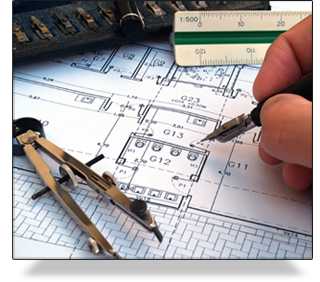As with any career, being an architect has its drawbacks and its rewards. Some are common to any career choice, while others are unique to the profession.
Disadvantages:
- The process of becoming an architect is long, competitive, and expensive. It takes five years of school to earn a Bachelor of Architecture degree, plus an additional two to four years for a master’s. Although admission requirements vary considerably, the most reputable architecture schools usually have extremely competitive standards with a heavy emphasis on the physical sciences, geometry, algebra, and trigonometry. After schooling comes three years of internship that, like other internships, can involve long hours and low pay. The Architect Registration Exam, which all aspiring architects must pass in order to become licensed, is also very difficult, with seven separate divisions and pass rates varying from 56% to 71% per division in 2009.
- Starting salaries for architects are considered lower than average when compared with other professional careers with similar requirements, such as medicine and law. According to the Bureau of Labor Statistics, the lowest ten percent of architects earned an annual salary of $42,320 in May 2009. The average annual wage was $72,700. Salary prospects generally rise after architects have spent several years in the profession and have worked their way up the ranks. Starting architects are often advised to practice good money management skills and perhaps even work a second job.
- Architecture is a very challenging and demanding field. The scope of issues that an architect is accountable for on a project is tremendous. Architects actually spend twice the amount of time working on a project as it takes to build it, in order to address various start-up and close-out issues. Architects often have to carry large amounts of insurance to protect themselves in case projects do not meet the client’s requirements or develop problems.
- The architectural field is very subject to the ups and downs of the economy. Architects depend on economic growth for their living. If the economy is depressed, construction of new buildings is one of the first things that will be in less demand, along with architects.
Advantages:
 Architecture is a demanding profession, but it can also be a very interesting, creative one. As architects gain more experience, they become more involved in actual design work rather than technical issues and routine construction documents.
Architecture is a demanding profession, but it can also be a very interesting, creative one. As architects gain more experience, they become more involved in actual design work rather than technical issues and routine construction documents.- Architecture is also never a boring career because of the variety of tasks it demands. No project is ever the same as the one that came before. Architects are also constantly dealing with different issues, such as meeting with clients and contractors, drawing plans, looking at estimates, or working out last-minute details and requests.
- Even though many architecture schools have heavy math requirements, many architects say that very little math is actually involved in their day-to-day routines. Anything that requires advanced levels of math such as calculus is usually handled by engineers or other specialists involved with a project. General overall intelligence, good drawing skills, an inquiring nature, and excellent listening and speaking abilities are actually the most important qualities for architects to possess.
- Most architects work in the profession not for the money but because they have a passion for their work, and this passion makes everything else worthwhile. Even with below-average pay, many architects know they are providing a valuable service and love every minute of it, especially when a client truly appreciates their finished work on a project. Also, the pay usually does increase with experience and can even be lucrative if you reach the top levels of the profession.